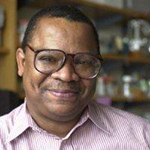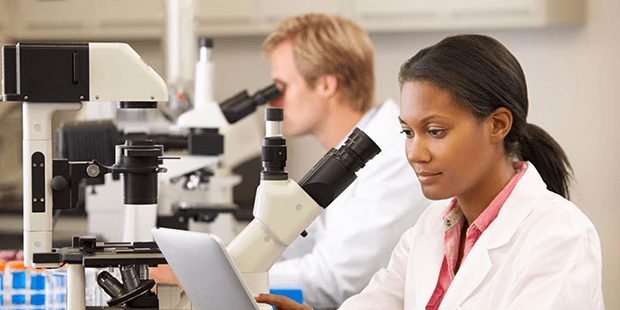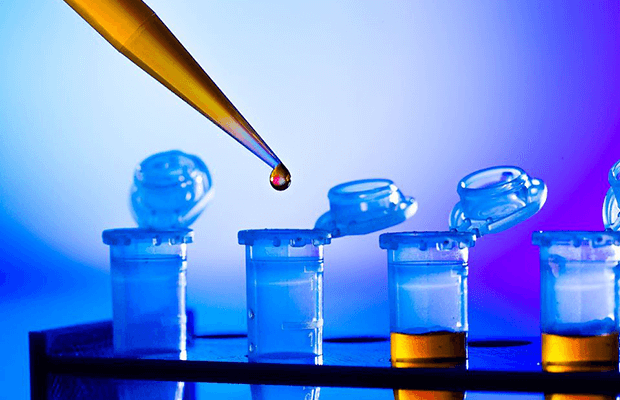Below is our recent interview with James L. Sherley, M.D., Ph.D., Director at Asymmetrex:

Q: Can you tell us something more about the company and what you do?
A: Asymmetrex is about 6 years out from its founding based on unique biotechnologies that originated in research began when I was a professor at MIT. My research at MIT focused on solving previously unyielding problems that severely limited progress in tissue stem cell biology and stem cell medicine. These problems are fundamental to the manufacture of any product, whether made of steel or made of cells. For effective manufacturing, you must be able to quantify a manufactured product at different stages of its processing, and you must be able to make more of the product. Both of these requirements have been nearly impossible to achieve in the 60 or more years that we have known about the potential of tissue stem cells to be remarkable medicines. Now, if you can solve the first problem, quantification, counting tissue stem cells, you’ve also made a big step towards solving the second problem, producing more of them. Working with our partner AlphaSTAR Corporation, Asymmetrex has solved the first problem. We now offer the first ever technology for specific and accurate counting of any human tissue stem cell type, including blood stem cells, liver stem cells, stem cells derived from fat, and others under evaluation for medical applications. This expertise and technology is what we bring to ARMI BioFabUSA with our new membership.
I’m the founder of Asymmetrex. Currently, as the company’s Director, I am responsible for all aspects of its operations and business development. We are still in our pre-finance, start-up phase. So, I do a lot of different things all focused on increasing Asymmetrex’s growth and value.

Q: What are your expectations for your company’s new membership in ARMI BioFabUSA?
A: It was quite an exciting moment for us when ARMI BioFabUSA invited us to join as a member. Asymmetrex has been interested to be a member of this agency and its visionary goals in regenerative cell biomanufacturing since hearing about its founding a couple of years ago. Our initial membership goals are two-fold in focus. First, Asymmetrex’s unique stem cell counting technology will be an advantageous addition to the ongoing biomanufacturing process engineering in ARMI’s cell foundry development program. Second, within the interactive environments fostered by ARMI among its member companies, Asymmetrex will be able to develop a better understanding of how most effectively to introduce and integrate its new technology into the current stem cell biomanufacturing industry and usher in new beneficial quantitative approaches.
Q: What types of products do you provide to your clients?
A: Presently, we provide a tissue stem cell counting contract service. Our technology has two elements. The first is systematic culturing the test tissue cell sample and collecting basic cell count data that anyone well trained in tissue cell culture can produce. The second element is something only Asymmetrex can do. We apply our proprietary AlphaSTEM Test^TM computer simulation software, developed with our partner AlphaSTAR Corp., to extract the stem cell count from the basic cell count data.
If a client wants a stem cell count, there are two ways to get it. They can send us their tissue cell sample, and we will count it for them. Or they can use procedures we provide to do the basic cell culture counting themselves and send us the data. We then apply our software to their data, and give them back the stem cell-specific count.
Our technology also provides other tissue stem cell-specific properties that were previously inaccessible; but now that we can determine them, they can be very useful to know for other stem cell applications like drug development. For example, we provide an evaluation of drug candidates to identify those that are stem cell-toxic. Drug companies spend many millions of dollars in animal tests and clinical trials to identify these drugs that fail late because they cause chronic organ failure. We can identify them much earlier in the drug development process at a greatly reduced cost. There is potential to save pharma companies 100s of millions of dollars each year.
Though we operate as a contract service now, our current plan is to eventually put our software into the hands of our clients by subscription. We are also planning to work with ARMI members to begin evaluating the development of the first electronic stem cell counters. There are many excellent electronic cell counters on the market now that are used to generate the basic input data for our software. It’s a no-brainer to put our software into one of those machines to make the stem cell counter that will be in very cell biology lab in and in every medical center. That’s the product I hope to engineer soon.
Q: What is the biggest challenge you’ve faced in your business and how did you overcome it?
A: Industry adoption of our new technology has been slower than we anticipated. We identified two likely causes and have now developed ways to address them. Both are barriers to the use of our technology. The first has to do with ease of use. The required basic cell count data for our software analysis takes 3-4 weeks to generate. And although there is no other way to get the information we provide, this long delay is enough to dissuade many or our targeted clients from incorporating our test into their current workflows. Recently, we have improved our technology to provide a stem cell count within 24 hours. Evaluation of this new technology advance in collaboration with other ARMI member companies is an exciting prospect of our new membership.
The second barrier to use that we have identified is general high industry reluctance to introduce new tests and measures that are not required by the FDA. This resistant stems from the financial and time costs for validating and verifying new tests before they can be used, because of existing FDA regulations; and a lack of motivation to voluntarily introduce new evaluations that are not currently required by the FDA, though needed. We have been working on this important barrier for about a year now with good progress. With Asymmetrex’s advocacy, in March of 2019, the FDA’s Standards Coordinating Body (SCB) listed tissue stem cell-specific counting as a needed standard for cell therapy clinical development. Related to this advance in industry leadership by the SCB, Asymmetrex has been approved by the American Society for Testing and Materials (ASTM) to conduct an interlab study of its AlphaSTEM Test^TM as a part of its evaluation to become an industry standard for tissue stem cell counting. Getting this study underway, potentially with ARMI member companies participating, is a major goal for us in 2020.

Q: What are your plans for the future?
A: As the head of a pre-finance biotech start-up company, my plans for the immediate future are quite pedestrian: Raise money, attract customers; and not necessarily in that order. However, we do that by continuing to work towards my vision for Asymmetrex, which is to improve the lives of patients by moving tissue stem cell biology, stem cell medicine, and the emerging discipline of tissue stem cell biomanufacturing into a new quantitative era, where we know how many tissue stem cells we are studying, how many tissue stem cells we are giving to patients, and how many tissue stem cells we are producing in our new tissue stem cell factories.

